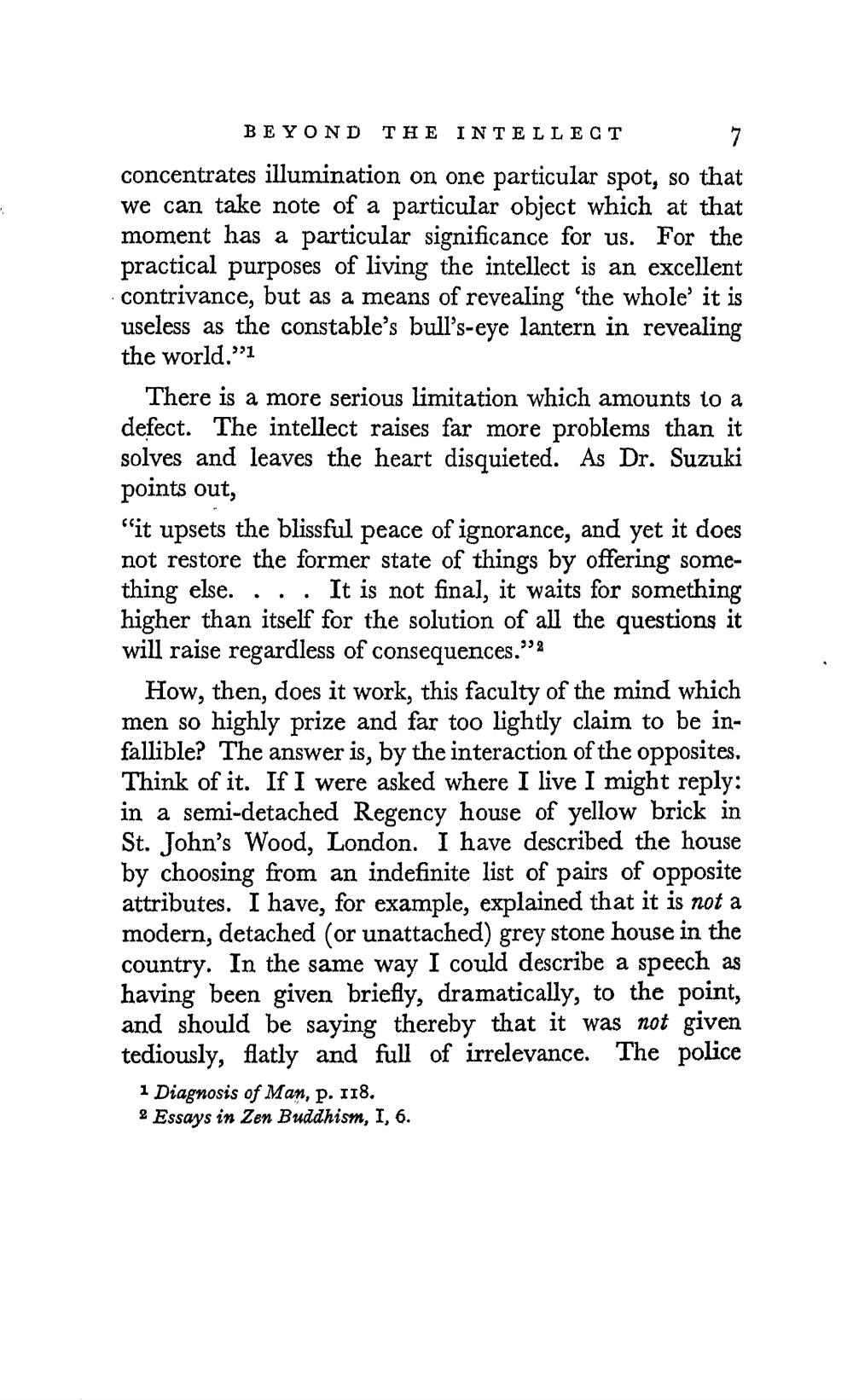________________
BEYOND THE INTELLECT
7
concentrates illumination on one particular spot, so that we can take note of a particular object which at that moment has a particular significance for us. For the practical purposes of living the intellect is an excellent contrivance, but as a means of revealing 'the whole' it is useless as the constable's bull's-eye lantern in revealing the world."1
There is a more serious limitation which amounts to a defect. The intellect raises far more problems than it solves and leaves the heart disquieted. As Dr. Suzuki points out,
"it upsets the blissful peace of ignorance, and yet it does not restore the former state of things by offering something else. It is not final, it waits for something higher than itself for the solution of all the questions it will raise regardless of consequences."
·
How, then, does it work, this faculty of the mind which men so highly prize and far too lightly claim to be infallible? The answer is, by the interaction of the opposites. Think of it. If I were asked where I live I might reply: in a semi-detached Regency house of yellow brick in St. John's Wood, London. I have described the house by choosing from an indefinite list of pairs of opposite attributes. I have, for example, explained that it is not a modern, detached (or unattached) grey stone house in the country. In the same way I could describe a speech as having been given briefly, dramatically, to the point, and should be saying thereby that it was not given tediously, flatly and full of irrelevance. The police
1 Diagnosis of Man, p. 118.
2 Essays in Zen Buddhism, I, 6.




